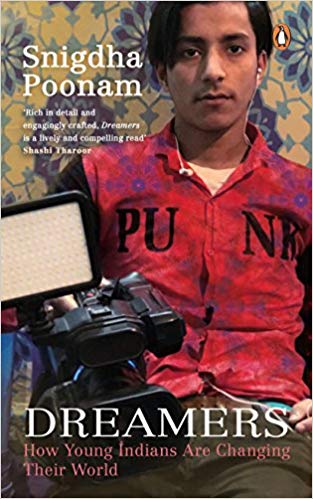Existence precedes essence.
—Jean-Paul Sartre
Twenty-first century India grapples with a unique conundrum: how to satiate desires and aspirations of close to fifty percent of the population under the age of twenty-five. This group of millennials have a profound preoccupation with change, novelty and acceleration of time. This heightened time-consciousness condemns the youth to deal with unforeseen and unthinkable circumstances. The feeling of nothingness acts as an unlikely springboard that catapults one to harbour audacious dreams. The real condemnation is to dream in such a situation without losing sight of the contingent nature of existence. Snigdha Poonam’s engaging new book called Dreamers: How Young Indians Are Changing Their World tries to make sense of what it means to dream in the quotidian lives suffused with anxiety, alienation and supreme boredom.
A set of paradoxical dreams wherein the drive to move away from existing predicaments is still deeply ensconced in a milieu of social conservatism and informed by a myopic sense of history. In fact, even this limited grounding in history falls way below the pecking order, behind ‘people, places, adventures and technology’ that bring meaning to life.
Travelling through small mofussil towns in North India, the author seeks answers for a very basic yet fundamental question which is, ‘What do India’s millennials want?’. The book covers seven intriguing stories, some which have always dotted the Indian landscape and others, with a rapid proliferation of technological developments, have seen formation of new, quirky jobs. From Clickbait journalism (online version of ‘Yellow Journalism’), the Spoken English hysteria to the rabid political fixers and scheming scammers, this generation, as the author says, ‘will not be defined on anything but their own terms’. A common thread that binds all the stories is that all the personal journeys marred by an acute sense of despondency are masked by the spunky nature of jobs which demand hyper ingenuity. ‘Who are you’ is defined in a more futuristic sense of ‘Who you want to be’. Thrill and adventure are at the heart of this existential being. It is no surprise that all the stories exhibit a strong aversion to tepid lifestyles, where the underlying belief is that creativity can blossom only in a state of chaos and confusion.

